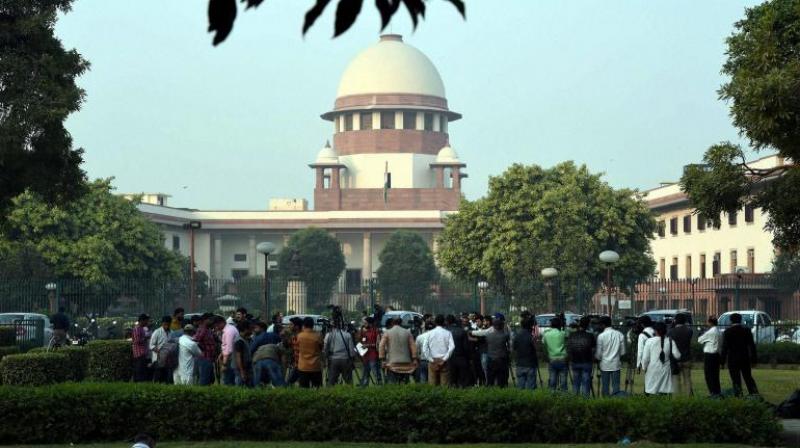Woman doesn't lose religious identity after inter-religious marriage: SC
'A man marries outside community and is permitted to retain his religious identity and a woman is not. How can she be debarred,' asks SC.

New Delhi: The Supreme Court on Thursday said the law does not sanction the concept of a woman's religion getting merged with her husband's faith after an inter-religious marriage.
A five-judge Constitution Bench headed by Chief Justice Dipak Misra was dealing a legal question whether a Parsi woman loses her religious identity if she marries a man from a different religion.
The bench, also comprising Justices AK Sikri, AM Khanwilkar, DY Chandrachud and Ashok Bhushan, asked senior advocate Gopal Subramanium, representing the 'Valsad Parsi Trust', to take instruction and apprise it on December 14 as to whether it can allow Goolrokh M Gupta, a Parsi woman who had married a Hindu, to attend the last rites of her parents.
Gupta has challenged the customary law, upheld by the Gujarat High Court in 2010, that a Parsi woman marrying a Hindu loses her religious rights in the Parsi community and hence, loses the right to visit the 'Tower of Silence' in the event of her father's death to perform the last rites.
Senior advocate Indira Jaising, appearing for the woman, referred to the Common Law doctrine of merger of religion which says that the religion of a woman gets automatically merged with the faith of the husband after marriage.
"A man marries outside the community and is permitted to retain his religious identity and a woman is not allowed to marry outside and retain her religious identity. How can a woman be debarred...," the bench said.
Jaising said even if it was presumed that the doctrine of merger had the customary sanction, the customs will have to pass the test of constitutionality and no custom can be allowed to infringe the fundamental rights of a person.
The bench said it was only the woman who can decide about her religious identity by exercising her right to choice. It said the presumption that a woman changes her religion according to the faith of her husband does not exist if the marriage has been solemnised under the Special Marriage Act.
At the fag end of the hearing, the bench said the short issue was whether a woman can be allowed to visit and pay respect to her parents after death and asked Subramanium to seek instruction from the Parsi trust and apprise it on December 14, the next date of hearing. On October 9, the apex court had referred to to a five-judge constitution bench the legal question whether a Parsi woman loses her religious identity after marrying a man of different religion.
The bench was hearing a plea filed by Gupta challenging the High Court judgement holding that a Parsi woman is deemed to have converted to Hinduism after she marries a Hindu man.
She had also sought the right to visit the 'Tower of Silence' in the event of her father's death to perform last rites.
The High Court had also held that she would be deemed to have acquired the religious status of her husband unless a declaration is made by a court for continuation of her Parsi status.
She contended that her rights as a Parsi Zoroastrian cannot be denied on the ground that she has married a non-Parsi man. She had also argued that a male Parsi Zoroastrian continued to enjoy all rights available to a born Parsi, even if he is married to a non-Parsi Zoroastrian woman.

